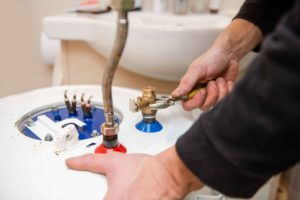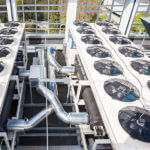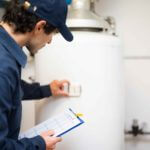If you want to get the most out of your water heating equipment, you must have a through HVAC maintenance plan in place.
Water heaters are among the most important appliances any homeowner can have. Water heating equipment enables us to keep up with important housekeeping tasks, like dishwashing, laundry, and even bathing. But a water heater is also an integral part of your heating, cooling, and ventilation (HVAC) system. But it doesn’t matter whether it’s an electric water heater or a gas-powered system, because the bottom line is these solutions are responsible for helping you fill your indoor environment with an efficient, safe, and comfortable airflow. And when protected correctly, they’ll help you keep your energy bills down, too.
As experienced mechanical service technicians, we know that to get results from your water heating system, you’ll need to establish a comprehensive preventive maintenance routine.
HVAC Preventive Maintenance Done Right
Preparing for your water heater’s eventual replacement is one of the wisest moves you can make. This doesn’t mean you have to start setting cash aside for an entirely new system. All you need to do is show your equipment a little tender love and care. Here’s everything you need to know about protecting your water heater:
Average Lifespan
Most water heating systems are engineered to run for eight to 12 years, depending on their make, model, and level of use. But certain factors can seriously hamper the equipment’s quality of life. That includes the number of occupants in the household, the amount of water pressure used, how much water is enclosed the storage tank, and the water’s mineral content. These things will speed up the system’s degradation, expediting the need for a new installation.
Signs of Failure
If you want to avoid having to write a check for an expensive water heater service repair, make sure you get a technician onsite to inspect your equipment every few months. In addition, you’ll also want to keep your eyes peeled for these warning signs:
- External rust on the storage tank
- Rusted faucet heads
- Low-heat maximum temperature
- Sandy or contaminated particles in the water
- Metallic-tasting tap water
- Cracks, punctures, or leaks from the tank
- Loud popping or crackling noises
Selecting the Right Equipment
Before pulling the trigger on a water heater installation, you’ll have plenty of things to deliberate. The water heater you choose ultimately depends on your home’s infrastructure. Some of the primary options include:
- Conventional water heating systems
- Tankless water heaters
- Heat pump heaters
- Solar water heaters
So, which one is the best choice for you? That ultimately depends on how much hot water you rely on, as well as the climate in which you live. Larger households are probably better off with a tankless solution, while those looking to reduce their energy usage could benefit more from a solar-powered water heating system. Numerous commercial water heaters are best suited for companies with larger staffs.
Regardless of the situation you’re dealing with, the experienced HVAC team at John’s Services and Sales will be there to help you make the best selection.
Schedule Your Free Maintenance Consultation Today
Don’t take your hot water for granted. Let the experts at John’ Services and Sales create a preventive maintenance strategy that enhances the quality of life you derive from your heating and cooling equipment. When it comes to water heating support, we are always prepared to help. We’ll follow the installation with only the best preventive solutions.
When our team is in your corner, expect more efficient equipment, lower energy bills, and more peace of mind. Contact us to find out how to capitalize on these exceptional benefits!



